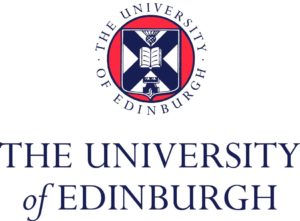Translation and Religion, 1-3 September 2016
 Call for papers: Translation and Religion: Interrogating Concepts, Methods and Practices
Call for papers: Translation and Religion: Interrogating Concepts, Methods and Practices
1-3 September 2016
University of Edinburgh, 1-3 September 2016
Abstract Submissions Deadline: April 15, 2016
What is the relationship between ‘translation’ and ‘religion’? While all ‘religions’ travel and engage in translation of one kind or another, what gets translated? How do the different components of what is currently understood as ‘religion’—texts, practices, experiences, inner faith or belief systems—translate differently? How can we analyze such commonly held beliefs that some languages simply are sacred and should not be translated? And what are the implications of such questions for understanding religious conversion? What can translation concepts and methods tell us about the way religions and the study of religions are constructed?
While both disciplines have evolved and grown rapidly over the past half century, each has also engaged, in the past few decades, in a re-evaluation of its basic ideas and terms, including fundamental categories such as ‘religion’ and ‘translation.’ It can no longer be taken for granted that there is one definition for what comprises the ‘sacred’ or indeed a ‘correct’ or ‘good’ translation. Such re-assessment provides an excellent context within which to creatively engage the two to generate forward-looking theoretical perspectives.
This three-day AHRC-funded conference aims to bring together scholars from the two disciplines to investigate theories, concepts and methods with comparative and critical tools in order to evaluate areas of mutually creative overlap. For instance, ‘religion’ and ‘translation’ are often taken to be universal and given categories. Instead, we hope to engage scholars in a dismantling of these categories to analyze their conceptualization as evaluative categories within different intellectual histories. Such a focus will allow us to re-evaluate the role of language and translation in the construction of religious concepts and identities as well as enhance current understandings of the nature and function of translation processes.
We invite papers that investigate any aspect of conceptual frameworks (i.e. evaluating the usefulness and limits of conceptual categories, the role played by conceptions of the sacred in developing translation concepts and practices, how and to what extent processes of translation interpret, evaluate or transform religions or the ‘sacred’/’secular’ dichotomy); practices (such as, translations of the sacred involving censorship, retranslation, mistranslations, compensation; role of power, status and ideologies of translators, institutions and faith communities; translations influencing the sacred status of texts; function of translation in the spread of religions and religious conversion); or methodological approaches (What can translation studies bring to the study of religions?, Can examining translation methods and practices contribute to the comparative study of religions or how religions function? What light can the study of the reception of sacred texts or practices of ritual reading throw on translation concepts and strategies? Can studying translation history (both history of translation practice and discursive statements) tell us about changing attitudes to the sacred over historical time?).
Keynote speakers:
Arvind-Pal Mandair
Associate Professor and S.C.S.B Endowed Professor of Sikh Studies, LSA, University of Michigan
Alan Williams
Professor of Iranian Studies and Comparative Religion, University of Manchester
For more details, please see http://www.ctla.llc.ed.ac.uk/translation-and-religion-interrogating-concepts-methods-and-practices/